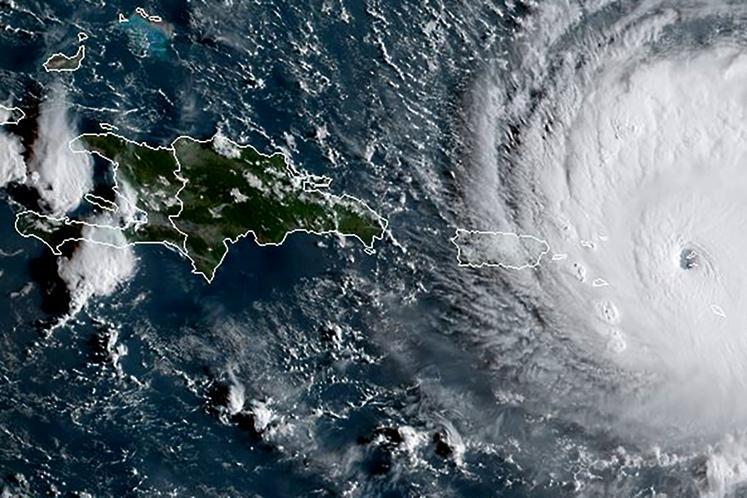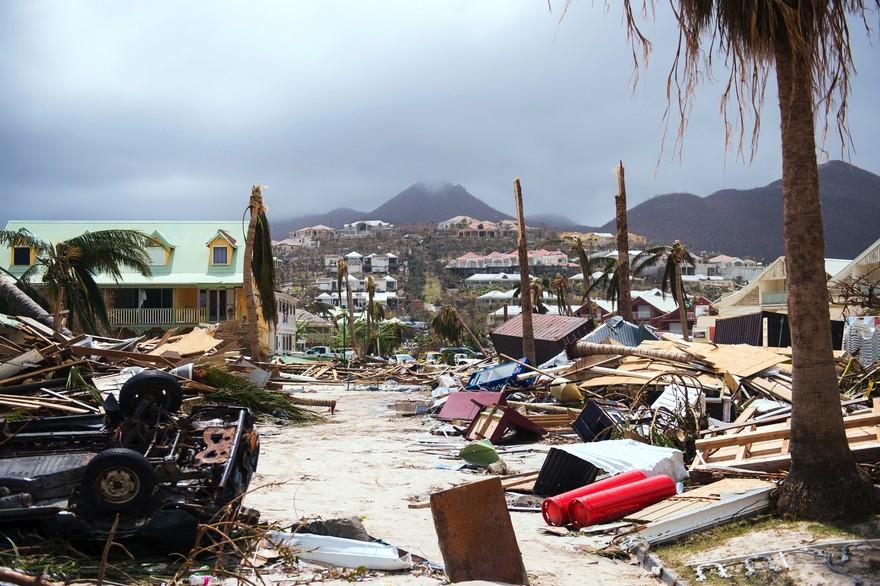Saint-Martin: the vulnerability of LGBTI people to global warming
Moïse Manoël-Florisse, is an African-Caribbean online journalist keeping an eye…
The climate vulnerability of LGBTI people is rarely highlighted, even though it is an important aspect of a global issue at the center of UN concerns. In this article, residents of the Caribbean region tell how they are affected by global warming’s already perceptible consequences.

Reported by Moïse Manoel
Translated by Star Rugori
In September 2017, Saint-Martin/Sint Maarten, a Franco-Dutch island 250 kilometers northwest of Guadeloupe, took the brunt of one of the most powerful hurricanes ever to reach the North Atlantic.
In recent interviews, Laurent, Lysanne, and Matthieu shared their views three-plus years after the disaster.
Irma is far from the first hurricane to hit Saint-Martin. Its inhabitants are accustomed to them.
“Every year, we prepare for the passage of hurricanes on the island. We stock up on food, fuel, buy gas and charcoal. We know we will have no water and no electricity once the storm has passed,” said Matthieu, a native and resident of Marigot, the capital of the French side of the island.
Recently, the increased severity and frequency of hurricanes have raised concerns.
Laurent, a resident for 33 years, remembers the impact of Hurricane Luis in September 1985: “It was long, and it lasted 36 hours, with gusts, storms, and torrential rain; it took two years to recover fully. Since Hurricane Luis, we have experienced 15 hurricanes.”
However, Hurricane Irma of September 2017 remains unique in history for islanders.
Laurent said, “With Irma, there were plenty of things that I categorize as abnormal: tornadoes, thunders in the center of the storm, as well as winds greater than 500 km/h.”
Matthieu explained: ”I had lost everything: the family home has been completely devastated. I also lost my job and my car. I was starting my life the right way before everything got wiped out in a matter of hours.”
On neighboring island of Saba, Lysanne was also affected by Hurricane Irma. “Extensive flooding affected the French side of the island, and the telecommunications infrastructure suffered heavy damage.”
Laurent still laments that “help came too late from Guadeloupe.” “The death toll was 11, but perhaps this figure could be even higher in reality,” he said. “Dead bodies were found on the beaches.”
LGBTI people confronted with disasters
Lysanne said with no doubt: “LGBTI people have always been marginalized and vulnerable. Global warming can only do more damage, especially in the Caribbean, where there are still ‘buggery laws’ (anti-sodomy laws from the Victorian era).”
“Experiencing a hurricane such as Irma is like being trapped in a world that is collapsing in front of your eyes. It further isolates LGBTI people, even though natural disasters of this magnitude affect everyone indiscriminately, whatever your fortune!” Laurent said.
But amid misfortune, solidarity emerged. Matthieu pointed out: “tTe disaster brought LGBTI people together. I didn’t talk to just anyone before the storm, but I had more connections with the LGBTI community after the storm.”
Lysanne added, “The ruthlessness of the post-Irma crisis forced LGBTI citizens to come closer to people who had previously rejected them, but who, like them, had lost their jobs.”

Devastated and dispersed
Almost 20,000 people have left the island in the wake of Irma, Laurent said.
The LGBTI community in Saint-Martin has been devastated and dispersed, Lysanne said. “Many have gone to the Netherlands or France, which has weakened the ties that bound us together here.”
As the only member of his family who has remained on the island, Matthieu is still struggling to finish renovating the family home in the Quartier d’Orléans. Regarding his close relatives, he observed, “It is not the hurricane that keeps them in France but rather the quality of the schools that keeps them there.”
Despite the upheavals, Lysanne said, “The solidarity that developed after Hurricane Irma is what allowed LGBTI activists on St. Martin to continue their activism while the island was being rebuilt.”
For his part, Laurent is thinking of setting up “prevention workshops or discussion groups” but says he believes he will not recover from the effects of Hurricane Irma for the rest of his life.
Star Rugori, the translator of this article, is a Burundi-based community organizer. @rugori_s




